Exploring the Wonders of Egypt: Uday’s Thrillophilia Trip Review

It wasn’t the pyramids, the Nile, or even the legends of pharaohs that drew us to Egypt. Honestly, we weren’t looking for a destination at all. We were looking for a reset. Between work calls and meal preps, we’d grown into a version of ourselves that existed more out of habit than intention.
Egypt was meant to be our way of pausing the world—and for the next few days, that’s exactly what it became.
Where the Present Meets Eternity
The first thing you notice about Egypt is its sense of duality. Cairo, with its busy streets and honking cars, feels almost modern—until you glance at the horizon and see the pyramids looming like echoes from another lifetime.
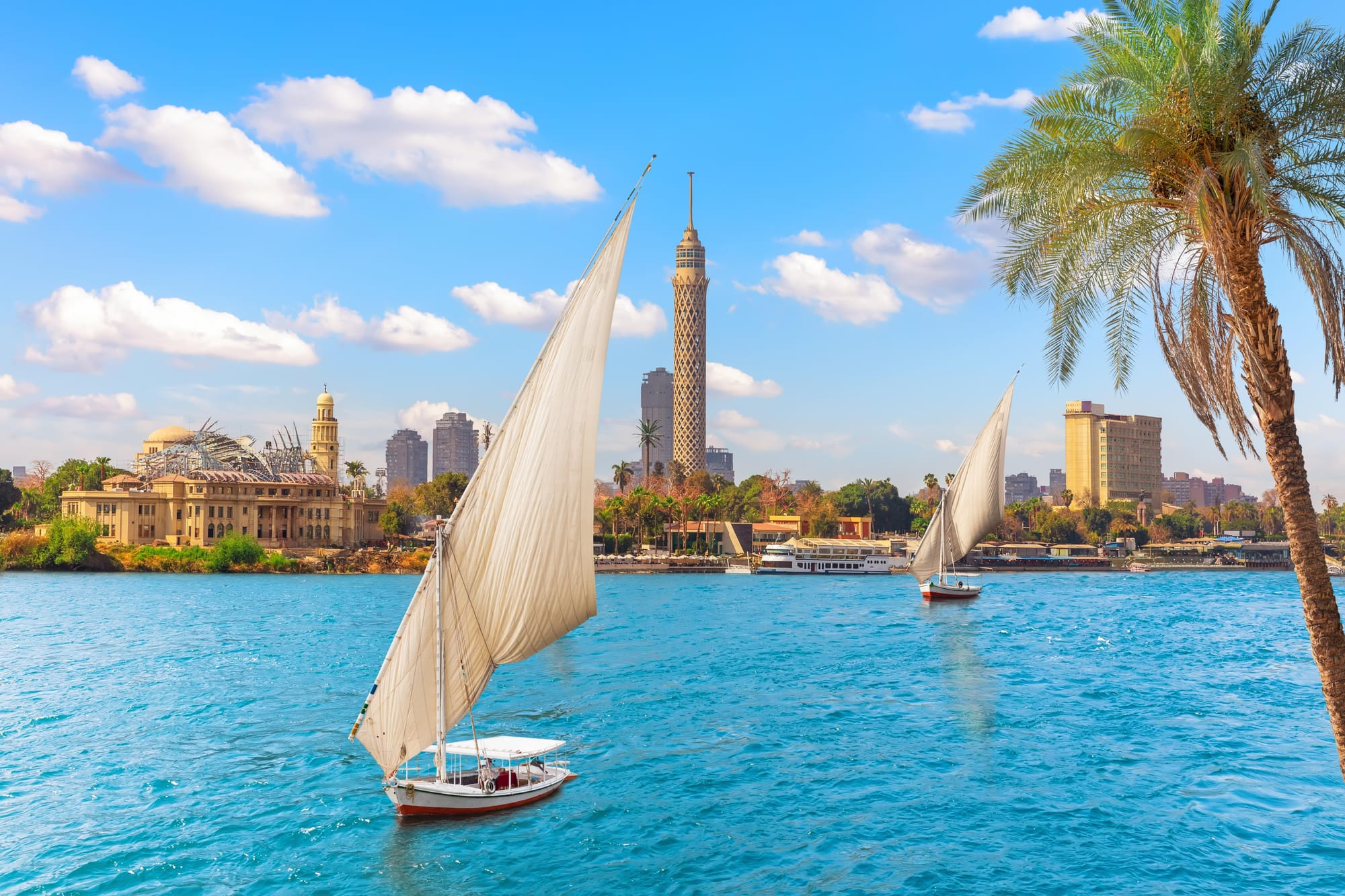
There’s something surreal about standing in front of the Great Pyramid. It’s not just its size; it’s the sense that it exists beyond you. My wife, who usually dives into history books, was oddly quiet, her fingers tracing the stone as if trying to absorb the centuries.
At the Khan El Khalili bazaar, the present collided with traditions. The shopkeepers had perfected the art of the warm hustle—handing you tea, complimenting your taste, and convincing you that their trinkets were the missing pieces of your life. I ended up buying a small copper lamp, more for the memory than anything else.
My wife teased me mercilessly: “You bought magic without the genie?” But when we lit it that night, the patterns it cast on the walls felt magical enough.
Whispers of the Desert
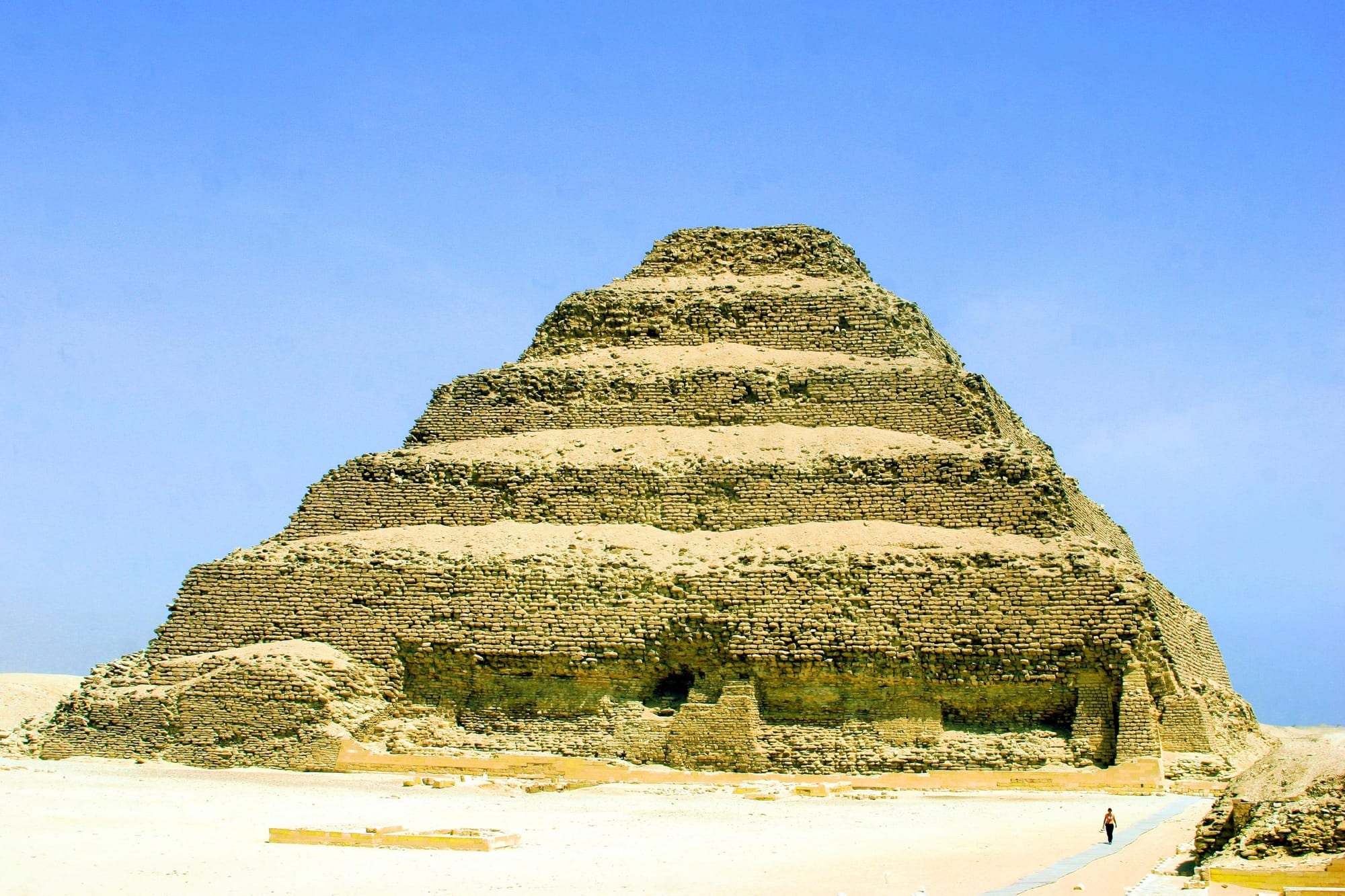
If Cairo was the chaos of humanity, the desert was its silence. The Black and White Deserts were like walking into an abstract painting. At one point, staring at the surreal limestone formations, my wife said, “This feels like being on the moon, except warmer.”
Our guide, Mahmoud, shared stories as we bounced along in the 4x4. He spoke of how the desert changes people—its vastness forcing you to confront yourself. “In the city,” he said, “you are distracted. Here, you meet your soul.”
That night, by the campfire, we laughed like kids. The sand was cold under our feet, but the fire warmed us, and the food—simple but delicious—felt like a feast. My wife joked that this was the first time in years we’d truly unplugged. No emails, no notifications, just the two of us and an endless sky.
The next morning, the sunrise crept over the dunes in slow, golden waves. We sat quietly, holding hands, as the world awakened around us. It felt like a promise—not one we made to each other, but one the desert made to us.
Lessons from the Nile
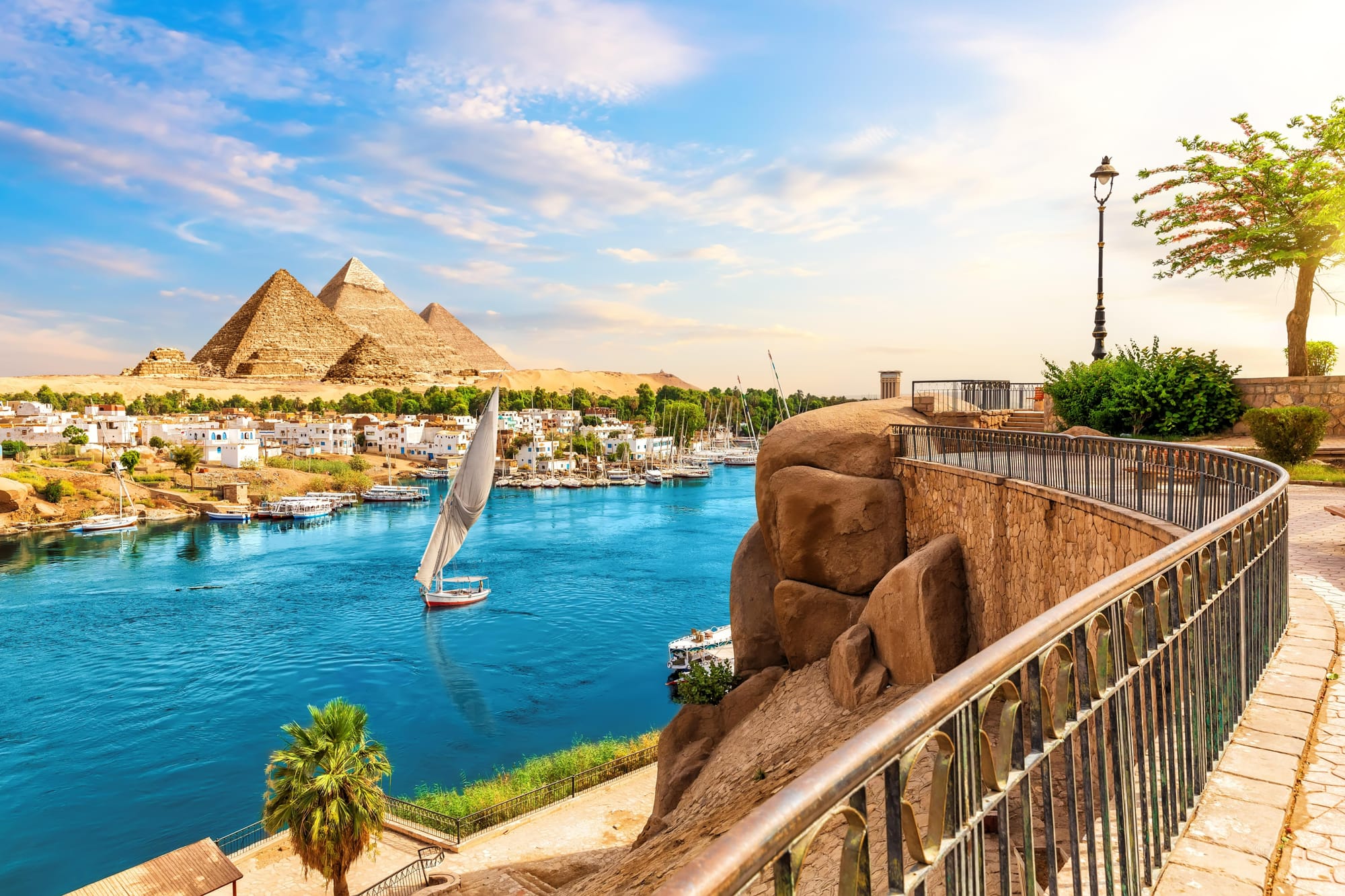
On the Nile, time slowed. The cruise wasn’t just a mode of travel; it was a gentle reminder to appreciate the in-between. We sat on the deck, watching life unfold along the riverbanks—farmers tending to their fields, children laughing, and women carrying baskets as if balancing centuries of tradition.
The temples we visited along the way were magnificent, but what stayed with me were the smaller moments. At Kom Ombo, a local man showed us an ancient well, explaining how it was used to measure the Nile’s flood levels. He spoke with such pride as if the river were his family.
My favourite memory, though, wasn’t grand or historical. It was during a quiet evening on the cruise. My wife and I played cards on the balcony, sipping hibiscus tea and listening to the gentle splash of the water. At one point, she looked up and said, “This is it. This is what we were searching for.”
The Sea and the Unexpected
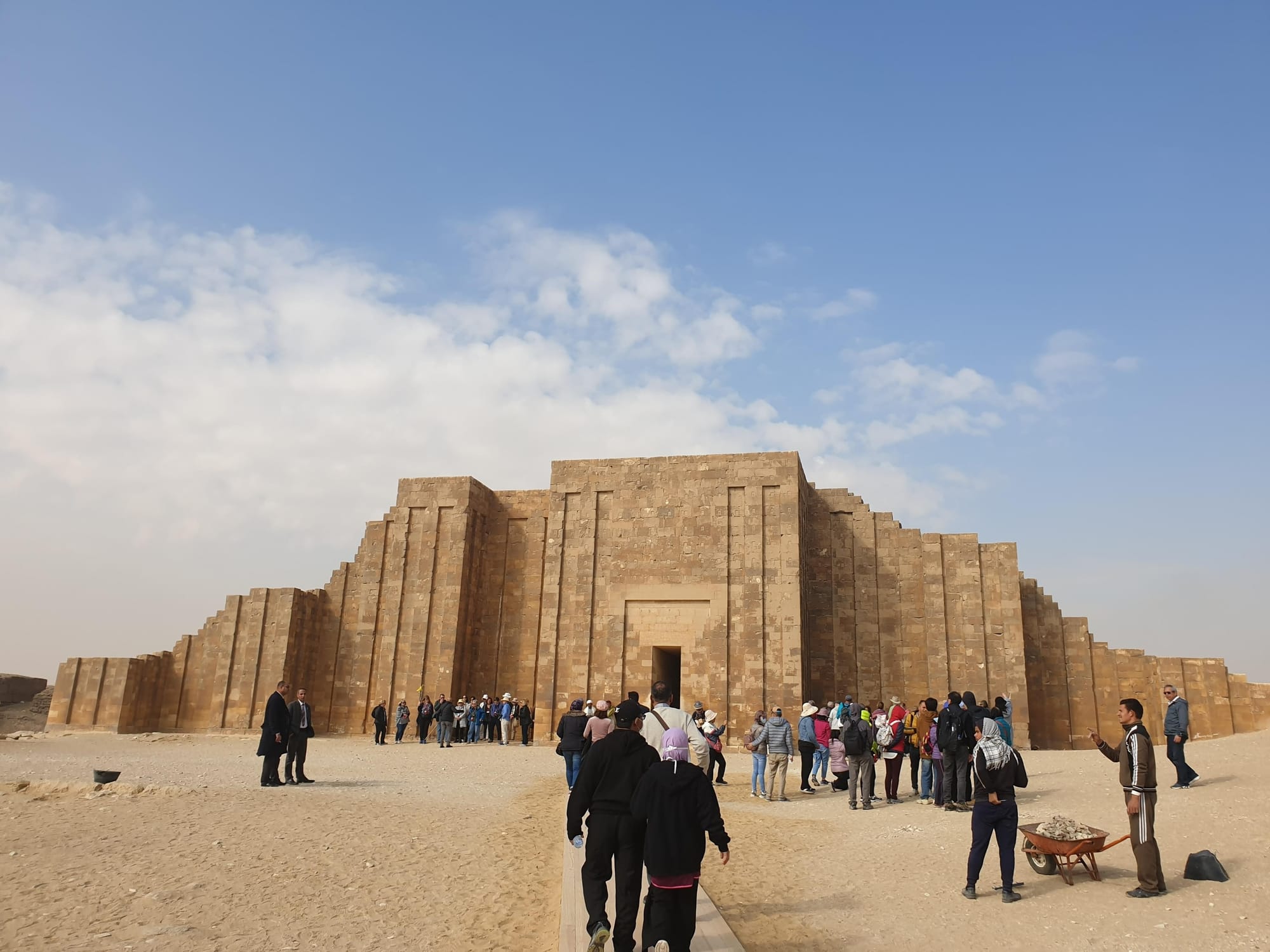
By the time we reached Hurghada, we thought we knew Egypt. But the Red Sea introduced us to its playful side. Scuba diving was like stepping into a dream—bright coral reefs, fish in colours I didn’t know existed, and the weightless feeling of being underwater.
My wife, initially nervous, ended up being braver than me. She floated ahead, pointing out a sea turtle with the giddiness of a child. Back on the surface, she teased, “Guess who’s the explorer now?”
Evenings in Hurghada were slower, softer. We wandered through local markets, tasted fresh seafood, and marvelled at how the sea breeze carried a sense of calm.
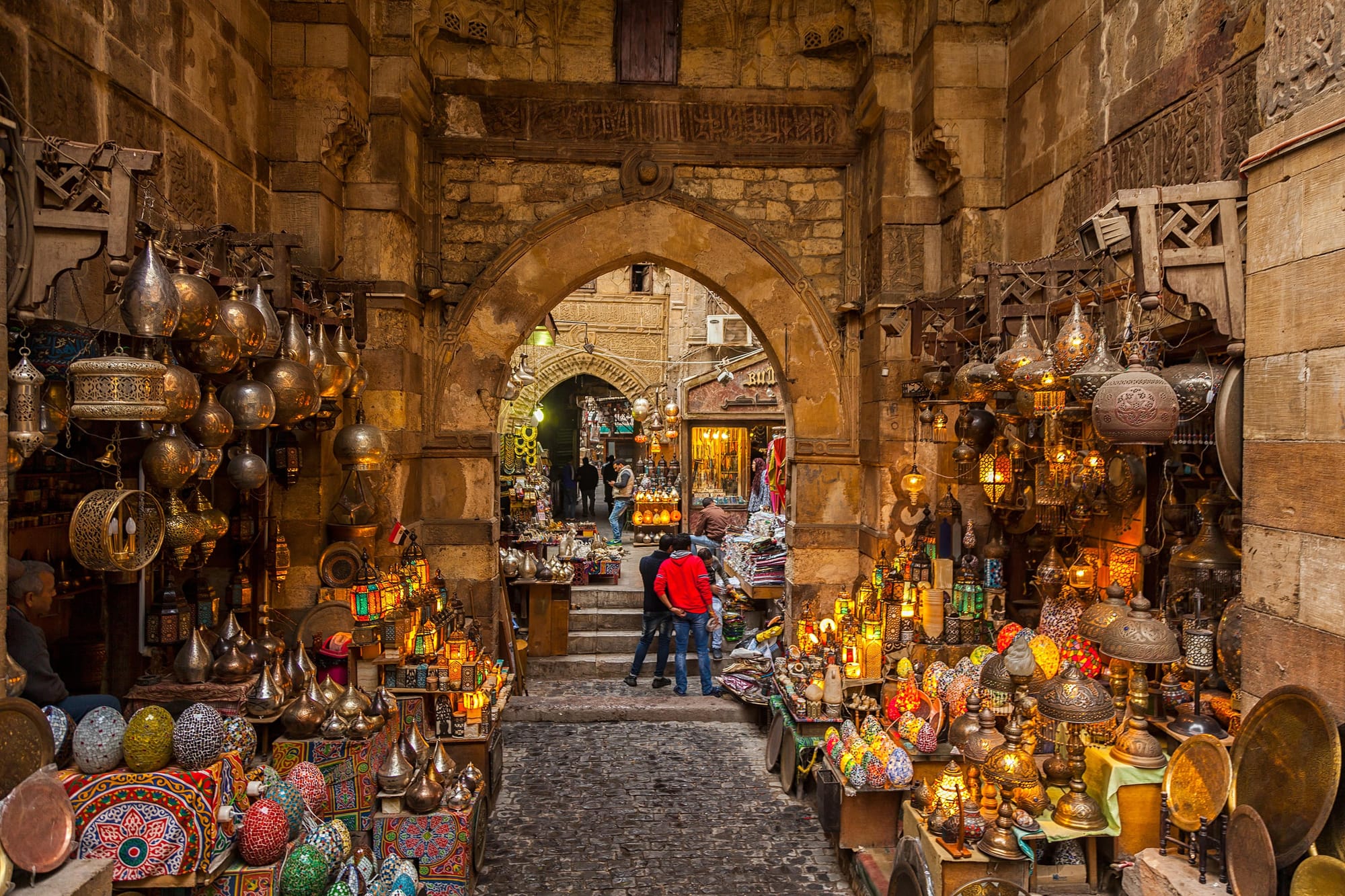
One night, we stumbled upon a small performance—a group of musicians playing traditional Egyptian tunes. We stayed until the last note, swaying in rhythm with strangers who suddenly felt like friends.
Coming Home Changed
Our last day in Cairo was bittersweet. We found ourselves back on a rooftop, overlooking the city as the sun set. The air was cool, the muezzin’s call echoing softly in the background. My wife turned to me and said, “Do you think Egypt is what we needed?”
I thought about the pyramids, the deserts, the Nile, and the Red Sea. But mostly, I thought about us—how Egypt had given us space to pause, to reconnect, to just be. “No,” I said, smiling. “I think Egypt was more than we ever expected.”
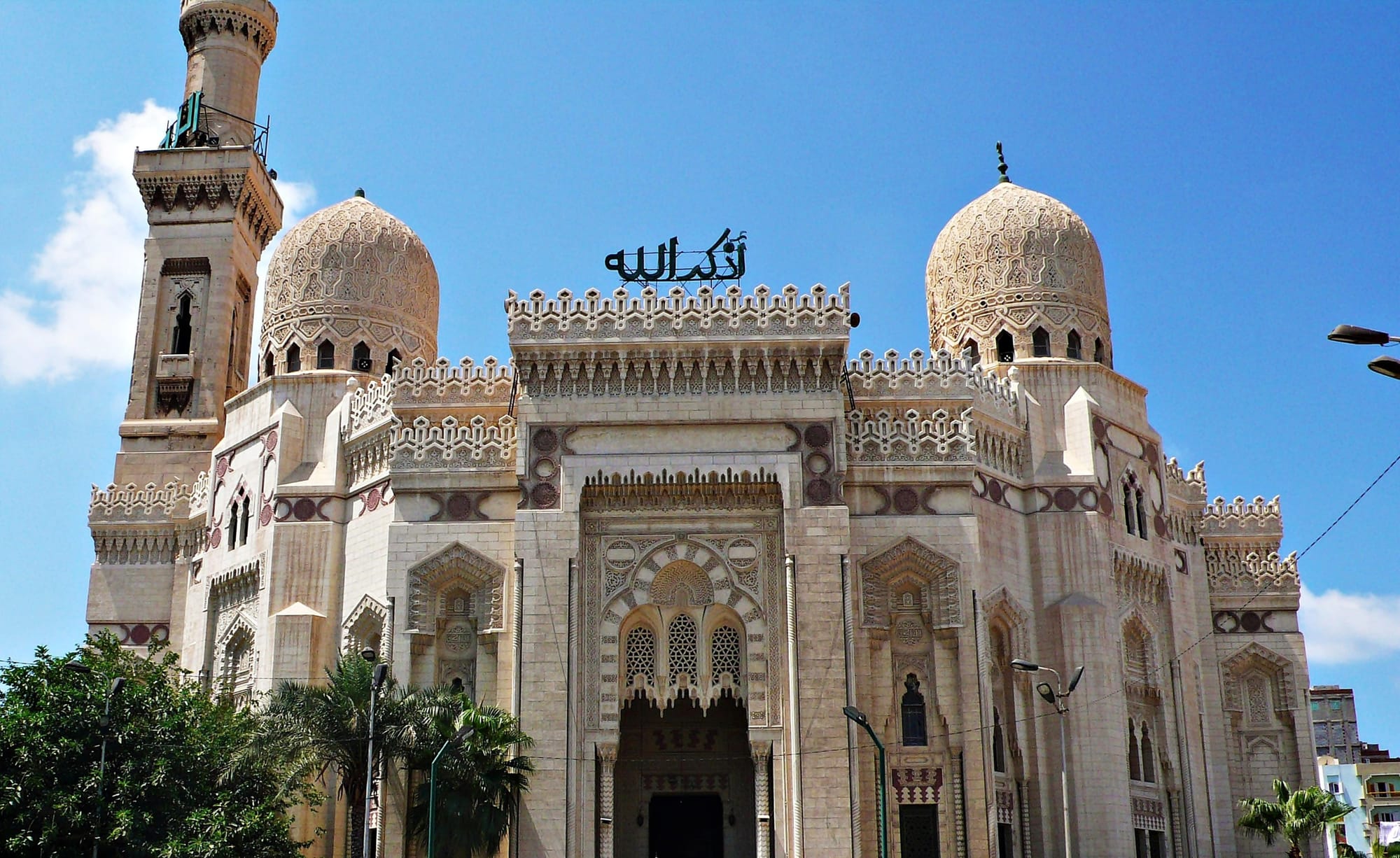
If you’re considering Egypt, don’t just think of the pyramids or the history books. Think of the magic in the tea, the stories in the sands, and the way it makes you feel alive. Because Egypt doesn’t just stay in your memories—it becomes a part of you.
Read more: Thrillophilia Egypt Reviews